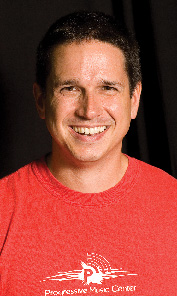 |
   |
 |
OCTOBER 2010 I CUSTOMER CARE I BY BILLY CUTHRELL I DOWNLOAD PDF A look at keeping no-show parents involved in music lessons Ghost parent syndrome is one of the most difficult conditions to deal with when running a music lessons program. Ghost parents, or GPs, start with the best intentions — they want to give their kids a musical education — and outbreaks happen among the best people. Early symptoms are hard to spot because, at first, these parents purchase all the right equipment for their kids. They ask a lot of questions and like to know the backgrounds of teachers, staff and the business. They seem like ideal clients. But there are telltale signs that ghost parent syndrome is setting in. A parent may suddenly disappear from your waiting room shortly after lessons start every week. Or, a parent won't communicate with teachers and staff unless there's a problem, such as missed lessons or billing errors. For the most part, GPs always drive up This causes problems, particularly when you need to speak with them about a tuition increase, lesson cancellation or studio policy upgrade. I once had a GP argue about a tuition increase nearly six months after the rate changed. True to form, the parent had never come in the shop to see the large signs posted at the entrance. We'd also e-mailed notices to all current students, and teachers had handed out reminder letters. Having said that, ghost parent syndrome can be misdiagnosed. We often overlook the fact that people's lives change due to work-related issues and family problems. Still, it's critical to get GPs involved in your lesson program. Consider this multi-tiered approach for treating them. Be detailed. At registration, be upfront and define your expectations. Explain that you encourage parents to sit in on lessons; you understand people are busy and know they can't attend every lesson; success is tied to frequent communication between parents, students and teachers; having them in the shop regularly is essential for them to know about policy updates, so there are no surprises; and it's important that they pick up their children on time. Make sure this is written out and they have copies for their records, preferably signed by both parties. You can't give them too much information. E-mail. Require a primary, secondary and student e-mail address at registration. Facebook. We've found that most of our teachers are friends with their students and their students' parents on Facebook. Teachers have figured out that they can contact most GPs through Facebook and get a response, if not immediately, at Texting. Our teachers and staff also use texting as an easy way to contact GPs. We Give them a reason to come in and stay. We noticed we had lots of stay-at-home moms bringing their kids to lessons, so we changed up our magazine selection with titles that would appeal to them — Better Homes And Gardens, Women's Health and People. We also installed large, comfortable chairs and big-screen TVs. We're even experimenting with serving a glass of wine (or beer for men) after 5 p.m. and giving out cards to the coffee shop next door. If you don't have one, consider building a small coffee bar in the corner of your shop. It doesn't take up much space and entices parents to stick around. Plus, it's a nice perk for staff and teachers. MI Billy Cuthrell operates Progressive Music Center and askourmusicians.com. Contact him at billy@ppdsonline.com. |